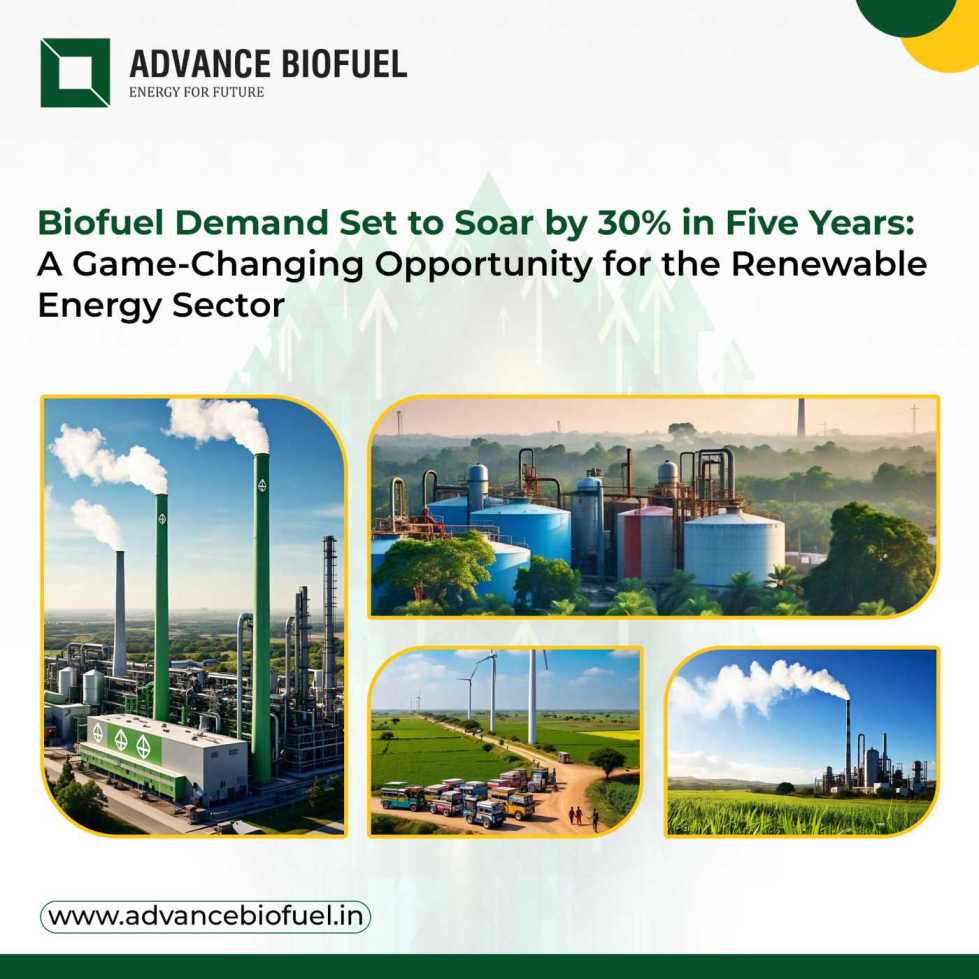In an era where sustainable energy solutions are taking center stage, the biofuel industry is witnessing unprecedented growth. According to a recent report published on a leading news platform, the demand for biofuels is projected to soar by an impressive 30% within the next five years. This growth trajectory is being spearheaded by nations like Brazil, Indonesia, and India, which have emerged as key players in the global biofuel market.
As a company dedicated to advancing renewable energy through biodiesel plant manufacturing, we believe this is a pivotal moment for the industry. Let’s delve deeper into the factors driving this surge in demand and its implications for the biofuel sector.
Why the Surge in Biofuel Demand?
The projected growth of 30% in biofuel demand is not a mere coincidence but a result of several converging factors. Here are the primary reasons:
- Global Push for Decarbonization: Governments worldwide are implementing stringent policies to reduce carbon emissions and transition to cleaner energy sources. Biofuels, being a sustainable and low-emission alternative to fossil fuels, are playing a crucial role in this shift.
- Rising Energy Needs in Emerging Economies: Countries like India and Indonesia are experiencing rapid urbanization and industrialization, leading to a surge in energy consumption. To meet this growing demand while adhering to climate goals, these nations are increasingly turning to biofuels.
- Supportive Policies and Incentives: National governments are introducing subsidies, tax breaks, and mandates to encourage the production and use of biofuels. For instance, India’s Ethanol Blending Program aims to achieve 20% ethanol blending in petrol by 2025.
- Technological Advancements: Innovations in biofuel production technologies, such as second-generation and advanced biodiesel, are making biofuels more cost-effective and efficient. These advancements are also broadening the range of feedstocks that can be used, such as agricultural waste and non-edible oils.
- Corporate Sustainability Initiatives: Many corporations are adopting sustainable practices and incorporating biofuels into their operations to align with global environmental standards and improve their ESG (Environmental, Social, and Governance) scores.
Key Players Driving the Growth: Brazil, Indonesia, and India
The report identifies Brazil, Indonesia, and India as the leading contributors to the rising demand for biofuels. Let’s explore why these countries are at the forefront:
- Brazil: Brazil has long been a pioneer in biofuels, particularly ethanol derived from sugarcane. With an established infrastructure and government support, Brazil continues to lead in biofuel adoption and export.
- Indonesia: As the world’s largest producer of palm oil, Indonesia is leveraging this resource to boost biodiesel production. The government’s B35 mandate, which requires a 35% blending of biodiesel with fossil diesel, is a significant driver of demand.
- India: India’s proactive policies, such as the National Policy on Biofuels and the Ethanol Blending Program, are driving significant growth in biofuel production and consumption. The focus on utilizing waste feedstocks and enhancing rural income through biofuel initiatives is also noteworthy.
Implications for the Biofuel Industry
The projected growth in biofuel demand presents immense opportunities for stakeholders across the value chain, from feedstock suppliers to biodiesel plant manufacturers. Here are some of the key implications:
- Increased Investment: The growth trajectory is likely to attract significant investment in biofuel infrastructure, research, and development. This includes the establishment of new biodiesel plants, particularly in emerging markets.
- Job Creation: As the biofuel industry expands, it will create numerous employment opportunities, especially in rural areas where feedstock cultivation and biofuel production are concentrated.
- Boost to Innovation: The rising demand will accelerate the development of advanced biofuels and production technologies, making the industry more efficient and sustainable.
- Global Collaboration: Countries are likely to collaborate on biofuel research, trade, and technology transfer, fostering a more interconnected and resilient renewable energy sector.
Challenges to Address
While the growth prospects are promising, the biofuel industry must address certain challenges to sustain this momentum:
- Feedstock Availability: Ensuring a steady and sustainable supply of feedstocks, such as agricultural waste and non-edible oils, will be crucial.
- Environmental Concerns: The industry must address concerns related to land use, deforestation, and the carbon footprint of feedstock cultivation.
- Market Volatility: Fluctuations in crude oil prices and geopolitical factors can impact the competitiveness of biofuels.
- Infrastructure Development: Expanding infrastructure for biofuel production, storage, and distribution remains a priority, particularly in developing nations.
How We’re Contributing to the Biofuel Revolution
At Advance Biofuel, we are committed to supporting the global transition to renewable energy. As a leading manufacturer of biodiesel plants, we provide end-to-end solutions for biofuel production, tailored to meet the unique needs of our clients.
- Customizable Solutions: Our biodiesel plants are designed to process a wide range of feedstocks, ensuring flexibility and efficiency.
- Cutting-Edge Technology: We leverage the latest advancements in biofuel production to deliver high-quality and sustainable solutions.
- Global Reach: With a strong presence in key markets, we are well-positioned to support the growing demand for biofuels worldwide.
Conclusion
The projected 30% growth in biofuel demand over the next five years marks a transformative period for the renewable energy sector. Countries like Brazil, Indonesia, and India are leading the charge, setting a benchmark for others to follow. This growth not only presents opportunities for the biofuel industry but also reinforces the global commitment to a sustainable and low-carbon future.
As industry stakeholders, we must seize this opportunity to innovate, collaborate, and contribute to a greener planet. At Advance Biofuel, we are proud to be part of this revolution, driving change one biodiesel plant at a time.
Stay tuned to our blog for more updates and insights on the biofuel industry!
To check news Sources click here


